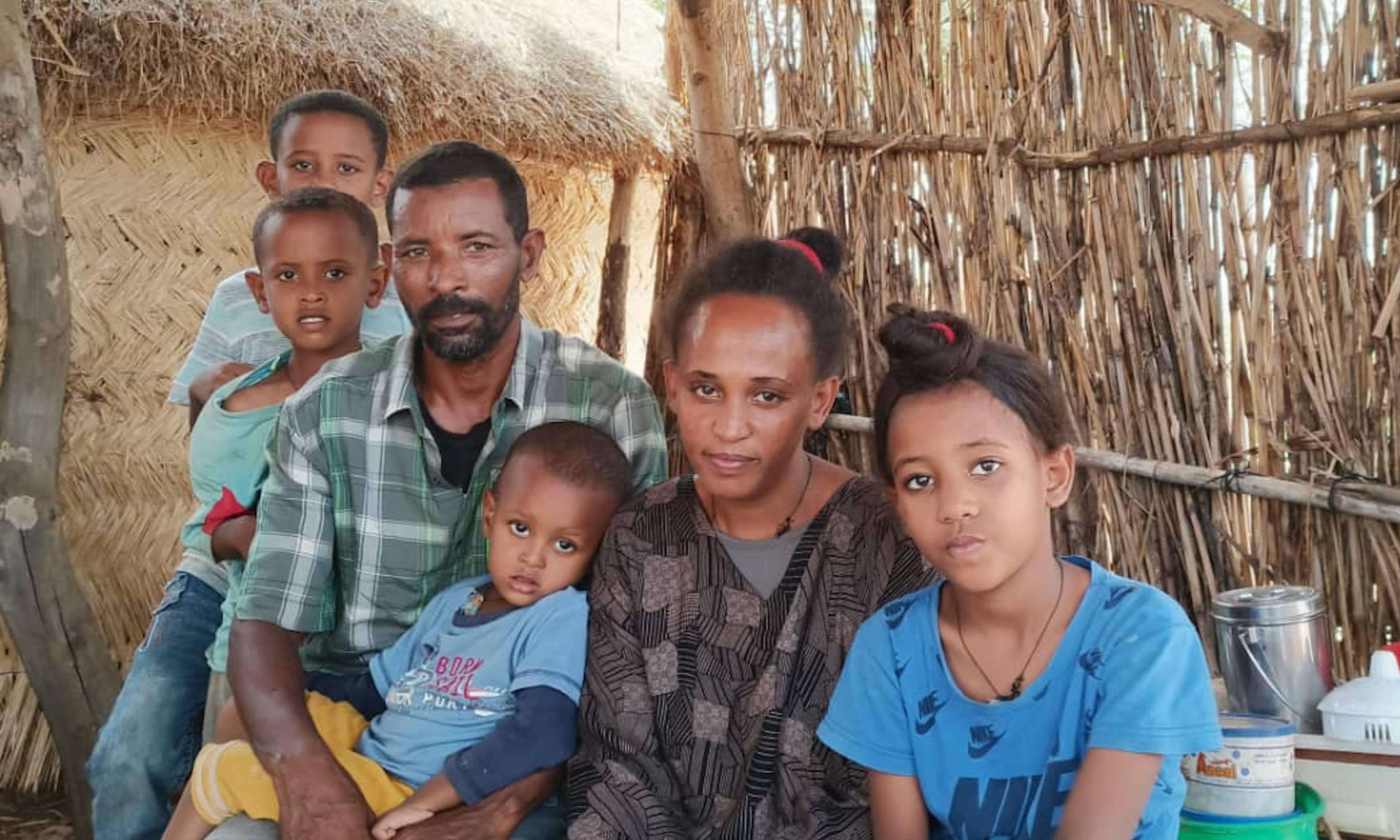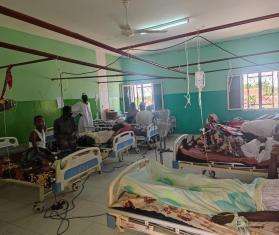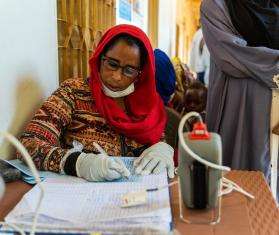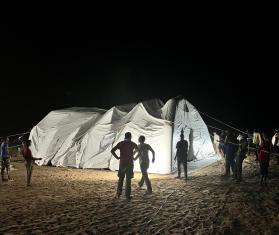Since April 15, different states in Sudan have been impacted by fighting, and limited access to health care and essential resources. This has drastically affected the lives of millions of people, leading to massive displacement and an influx of refugees seeking safety in neighboring countries.
Sudan hosts one of the largest numbers of refugees in Africa, according to UNHCR. About 61 percent of refugees live in informal settlements, host communities, and urban areas, while 39 percent reside in camps, particularly in eastern Sudan and White Nile state in the south, where Doctors Without Borders/Médecins Sans Frontières (MSF) is providing medical and emergency support.
For Ethiopian refugees like Salim* and Qamar*, who had already escaped violence in their homeland, their journey from Khartoum to east Sudan with their four children was fraught with risks.
"Our entry point to Sudan in November 2020 was the refugee reception center in Hamadayet, on the Sudanese-Ethiopian border,” said Qamar. “From there, we were transferred to Um Rakuba refugee camp. Although we tried to adapt to life in the camp, our circumstances became worse when our tent burned down, destroying all our food and our children's clothes. Consequently, we made the decision to leave the camp and travel to Khartoum. I took my children and accompanied my husband to begin his heart disease treatment journey."
After fleeing violence in Tigray, Ethiopia, the family did not anticipate being caught in another wave of violence when the current conflict in Sudan erupted in April.
Salim recalls the details of how he and his family escaped from Khartoum, an overwhelming and extremely distressing experience.
“The battle took place on the street directly opposite our house, with bombs raining down on the surrounding homes. The air was filled with the deafening noise of warplanes and explosions,” said Salim. “My children hid under the bed. It was disheartening to think that I had fled my own country due to war, only to face the possibility of death in the country where we had sought refuge.”

Sudan crisis response
Read how MSF is helpingAfter two weeks, the family ran out of food and money. “Almost all our neighbors left Khartoum,” Salim said. “One of our neighbors, upon learning of our dire situation, helped us reach the bus station and even covered the cost of our tickets to Wad Madani. As we departed, I witnessed smoke rising and buildings engulfed in flames. That horrifying scene will forever haunt me. Along the road, we encountered armed men at a checkpoint who questioned whether we were armed. I reassured them that we were refugees and simply wished to live peacefully with our children. They let us pass, but we trembled with fear."
The family spent 11 days in Wad Madani, finding temporary accommodation in a school that lacked basic services. Without transportation tickets to reach Um Rakuba in Al-Gedaref state, they struggled to provide food for their four children. The assistance of other families provided them with the necessary tickets to travel to Um Rakuba camp.
In Al-Gedaref state, MSF is operating standalone secondary health care hospitals in Um Rakuba and Tanedba refugee camps. These hospitals also provide care to a significant number of patients from the surrounding community. Prior to the current conflict, in Um Rakuba hospital, the majority of admissions to the therapeutic feeding center were from the broader community around the camps.
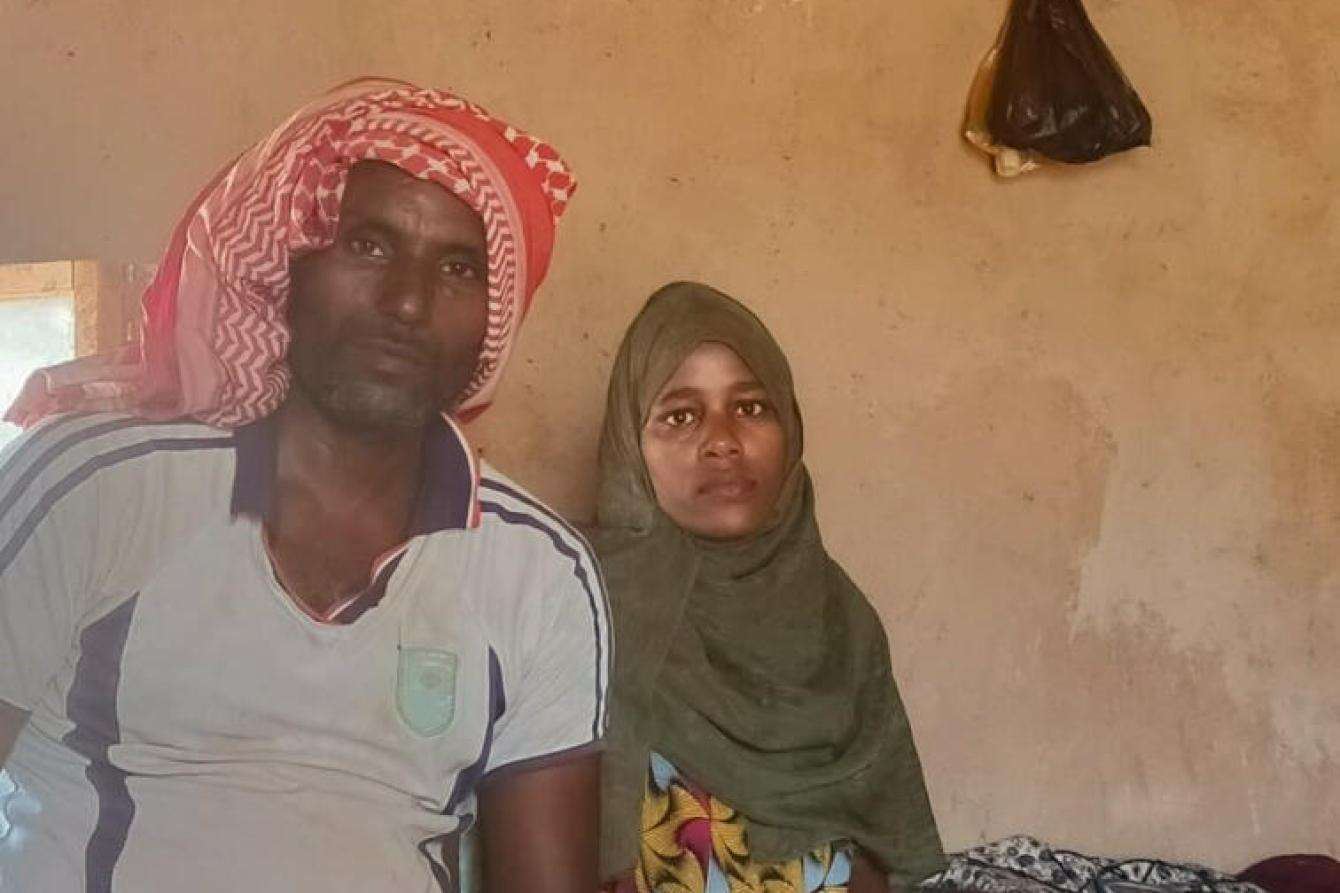
In recent years in Um Rakuba camp, our teams have been providing access to comprehensive primary, secondary, and emergency medical care; including pediatric outpatient and inpatient support in addition to the therapeutic feeding and blood transfusion centers. We also provide referrals to secondary and tertiary healthcare facilities as well as for mental health services.
“As soon as I arrived at Um Rakuba camp, I took my children to the MSF hospital for treatment of skin diseases and diarrhea they contracted during our escape from Khartoum,” said Salim. “I don't have shelter, food, or anything here. I rely on the assistance of my relatives among the refugees in the camp. We appeal to other organizations to help us. We have nothing. We came to Sudan not for work or money. We came to save our lives and protect our children.”
The situation through the eyes of children like 11-year-old Mondi* provides a distinct perspective on the impact of the conflict: "I was getting ready to go to school when I saw my mother terrified, asking us to hide under the bed. I cried along with my siblings because the sound of bombs was very frightening. I don't like war because it made me very hungry. My father couldn't buy food for us. I don't want to go back there; they made my siblings cry."
These words highlight the profound fear and trauma experienced by children who witness and endure the consequences of conflict.

"They gave us two options: leave for Chad or be killed"
Read storiesThe main challenges encountered at Um Rakuba refugee camp include the limited availability of secure shelter and the inadequate state of existing shelter infrastructure, particularly during the rainy season.
“A few days ago, some shelters were destroyed by heavy wind and rainfall,” said Zahir Gul, MSF project coordinator in Um Rakuba. “With the arrival of approximately 850 new refugees from Khartoum, the situation became worse. Some refugees are living with relatives in the camp, but most are in common shelter with poor living conditions. They are traumatized and have very limited access to essential services like food, shelter, and sanitation,” he said.
MSF has been actively working in the refugee camp since 2020, providing vital support to refugees and host communities. Since before the current crisis, we have been advocating for increased support to address the lack of services where the consequences of significant funding cuts are already visible. Despite the current conflict, the security situation in this part of Sudan remains calm and relatively accessible. However, we are not seeing humanitarian organizations returning to resume activities to a level which meets the needs of the people in East Sudan. MSF appeals to donors and humanitarian organizations to redouble their investment to ensure that the most basic services, including adequate shelter, health, nutrition, and protection assistance can be assured.
About MSF in Sudan
Since the escalation of the current crisis in Sudan, MSF has been actively working in 12 states: Khartoum, Kassala, Al-Jazeera, West Darfur, North Darfur, Central Darfur, South Darfur, Red Sea, El-Gedaref, Blue Nile, and White Nile States. From April to June 2023, MSF teams in Um Rakuba provided around 4000 outpatient consultations to the host community and refugees. MSF also donated medical supplies and drugs to the Ministry of Health in the state to support Al-Gedaraf Hospital as of June 21.
* Names changed to protect patients’ privacy.
